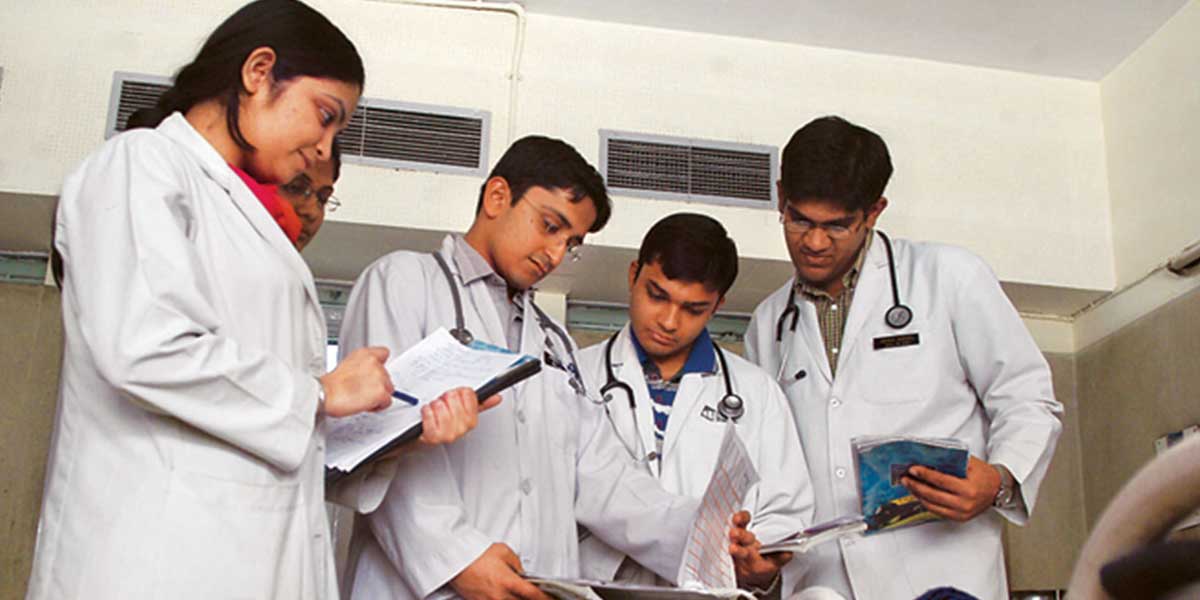
The graduate medical curriculum is oriented towards training students to undertake the responsibilities of a physician of the first contact who is capable of looking after the preventive, primitive, curative and rehabilitative aspects of medical care.
The broad-based training aims to provide an educational experience with all the essentials required for health care in our country. Moreover, a wide range of career opportunities awaits students.
Click here if you want to know about course fees.
At the end of the undergraduate program, the medical student shall endeavor to be able to:
Duration of this course is 5½ years i.e. 4½ + one-year Compulsory Rotatory Resident Internship [CRRI].
(a) PHASE – I (I MBBS) ONE YEAR consisting of Pre-clinical subjects of –
i) Human Anatomy,
ii) Physiology,
iii) Bio-Chemistry, and
iv) Introduction to Humanities & Community Medicine.
Besides 60 hours for introduction to Community Medicine including Humanities, rest of the time shall be somewhat equally divided between Anatomy and Physiology plus Biochemistry combined (Physiology 2/3 and Bio-Chemistry 1/3). ( PSM 60 hrs.+ Anatomy 650 hrs. + Physiology / Biochemistry 720 hrs).
(b) PHASE – II (II MBBS) 1 ½ YEARS consisting of following para-clinical / clinical subjects –
i) Pathology,
ii) Microbiology,
iii) Pharmacology,
iv) Forensic Medicine including Toxicology, and
v) Part of Community Medicine
During this phase, the teaching of para-clinical and clinical subjects are all those detailed under Phase III below which shall be done concurrently. Out of the time for Para-clinical teaching, approximately equal time shall be allotted to Pathology, Microbiology, Pharmacology and Forensic Medicine and Community Medicine combined (1/3 Forensic Medicine and 2/3 Community Medicine).
(c) PHASE – III (III MBBS Part – I & II ) TWO YEARS – Each Part one year of study –
The clinical subjects to be taught during Phase III are –
III MBBS – Part: I – 1 year :
i) Community Medicine including Humanities.
ii) Forensic Medicine
III MBBS – Part: II – 1 year :
i) General Medicine and its allied specialities.
ii) Surgery and its allied specialities.
iii). Obstetrics and Gynaecology, and
iv) Paediatrics including Neonatology.
v) Ophthalmology
vi) Oto Rhino laryngology
vii) Ophthalmology
viii) Oto – Rhino-Laryngology
English shall be the medium of instruction for all the subjects of study and for examinations.
Each academic year shall consist of not less than 240 teaching days of eight hours each college working time, including one hour of lunch.